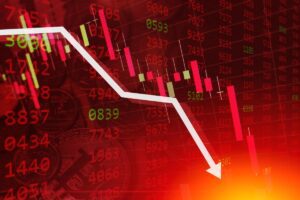ButSpeak.com
News which Matters.

Renowned economist Harry Dent has raised alarm bells, predicting an imminent stock market crash that could eclipse the severity of the 2008 financial crisis. Citing a report by Fox News, Dent cautioned that the current economic bubble, driven by prolonged artificial stimulus, poses a grave threat to global financial stability.
Dent, a best-selling author renowned for his unorthodox economic analysis, warned that the current bubble, fueled by unprecedented stimulus measures over the past 14 years, is reaching unsustainable levels. In an interview with Fox, he highlighted the prolonged nature of the bubble, surpassing the typical five to six-year lifespan observed in most market cycles.
Attributing the bubble to hyperbolic money pumping and loose monetary policies since the 2008 financial crisis, Dent expressed concerns over inflated asset prices, labeling it as the “bubble of all bubbles.” He further warned of a potential crash surpassing the magnitude of the 2008-09 crisis, with projections of an 80% decline in the S&P and a 90% plunge in the Nasdaq, potentially occurring by 2025.
Despite recent speculations of monetary tightening by the US Federal Reserve, Dent remains skeptical of the central bank’s ability to curtail the impending crisis. While financial markets had priced in multiple interest rate cuts for 2024, the Fed has signaled a cautious approach, emphasizing the need for sustainable inflation targets.
In light of Dent’s ominous predictions, recent economic indicators paint a mixed picture. The World Bank revised its global growth outlook, citing resilient consumer spending in the US. However, the robust performance of US markets, with the S&P 500 and Nasdaq registering significant gains, belies the underlying fragility highlighted by Dent’s warnings. As investors brace for potential market turbulence, Dent’s cautionary outlook serves as a stark reminder of the inherent risks posed by prolonged artificial stimulus and inflated asset valuations.